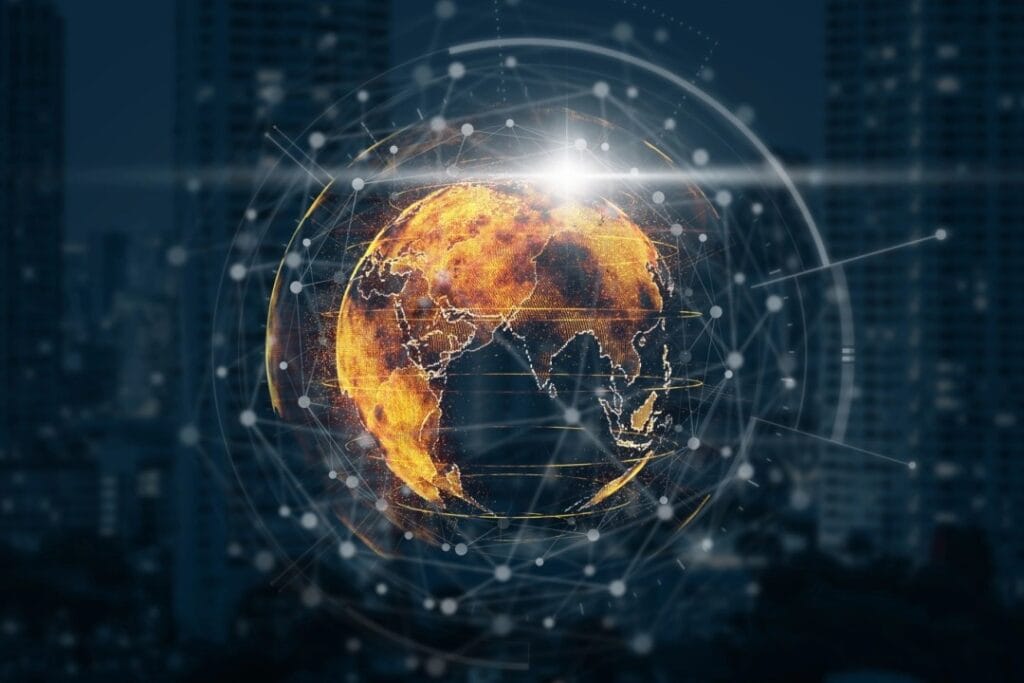Core Geopolitical Theories and Frameworks:
Discover the foundational concepts of geopolitics, including Mackinder’s Heartland Theory, Spykman’s Rimland, and Mahan’s Sea Power. Learn key terminologies and their relevance in understanding global power dynamics.
Geopolitics is a tool for understanding power dynamics between nations, focusing on the influence of geography. This subject is equally important for beginners, students, and professionals because it provides a structured framework for understanding current, and future events and policies happening in the world.
In this blog, we will understand some important geopolitical theories and key terminologies that form the foundation of geopolitics.
Geopolitical Theories
- Mackinder’s Heartland Theory
- Introduction:
Sir Halford Mackinder introduced the “Heartland Theory” in his 1904 work The Geographical Pivot of History, focusing on land-based power. - Core Idea:
“Who rules East Europe commands the Heartland;
Who rules the Heartland commands the World Island;
Who rules the World Island commands the World.” - Heartland:
The Heartland, also known as the “Pivot Area,” refers to the central region of Eurasia, which was considered invincible due to natural barriers like mountains and deserts.
Significance:
Mackinder believed that whoever controlled the Heartland could achieve global dominance. The regions of Russia and Central Asia are central to this theory.
- Spykman’s Rimland Theory
- Introduction:
Nicholas Spykman developed the Rimland Theory in 1942, challenging Mackinder’s Heartland Theory. - Core Idea:
“Who controls the Rimland rules Eurasia;
Who rules Eurasia controls the destinies of the world.” - Rimland:
The Rimland represents the coastal regions that surround the Heartland. Control over these regions is considered crucial because of their trade significance and maritime power.
Significance:
Spykman emphasized that maritime power (naval dominance) and control of coastlines are most important for global dominance. Whoever controls these regions can control the world.
- Mahan’s Sea Power Theory
- Introduction:
Alfred Thayer Mahan, an American naval historian, wrote The Influence of Sea Power Upon History in 1890. - Core Idea:
Mahan’s focus was on sea power and naval dominance. He believed that nations with strong naval forces and control over strategic maritime routes could dominate global power.
Key Elements:
- Strategic naval bases
- Control over chokepoints (e.g., Strait of Malacca, Suez Canal)
- A strong merchant fleet
Significance:
Mahan’s theory is still relevant in the maritime policies of the USA and Britain, as they have based their strategies on this theory, and it helps us understand the geostrategic importance of oceans today.
Key Terminology
- Balance of Power
- Definition:
Balance of Power is a condition where global powers maintain an equal influence, preventing any one nation from dominating others. - Importance in Geopolitics:
Its purpose is to maintain global stability. For example, during the Cold War, maintaining balance between the USA and the USSR was a key factor.
- Geostrategy vs. Geopolitics
- Geopolitics:
Geopolitics studies the relationship between geography and political power. Its focus is on global power dynamics. - Geostrategy:
Geostrategy is a practical approach where nations apply strategies to achieve their geopolitical goals. - Example:
One of China’s geostrategic moves is the Belt and Road Initiative (BRI), through which China aims to enhance its geopolitical dominance.
- Sovereignty and Territoriality
- Sovereignty:
Sovereignty refers to a nation’s complete control over its territory and borders. It defines the nation’s independence and political authority. - Territoriality:
Territoriality refers to a nation’s control and influence over a geographical area.
Relevance:
The Ukraine-Russia war is a classic example where sovereignty and territoriality are central to geopolitical debates.
Why These Concepts Matter
For Students:
These theories and terminologies help analyze global conflicts and policies.
For Professionals:
Geopolitical knowledge is essential for decision-making and strategic planning, especially for international businessmen or those in internationally surrounded fields.
For Beginners:
These foundational concepts help understand the power dynamics, news, and events in the world, enabling better analysis of news, events, and power dynamics.
Conclusion
Geopolitics is a dynamic and complex field through which we can see the intricate balance between geography, politics, and power. The theories of Mackinder, Spykman, and Mahan show how strategically important land, sea, and coastal areas are. These theories also explain how world powers can dominate. At the same time, key terminologies provide a deeper understanding of how nations pursue their interests.
- If you found this post valuable, please be sure to comment and share your opinion.
Core Geopolitical Theories and Frameworks: Understanding Power Dynamics in Global Politics
Core Geopolitical Theories and Frameworks:
Core Geopolitical Theories and Frameworks:
Core Geopolitical Theories and Frameworks: Core Geopolitical Theories and Frameworks: Core Geopolitical Theories and Frameworks: Core Geopolitical Theories and Frameworks: Core Geopolitical Theories and Frameworks: Core Geopolitical Theories and Frameworks: Core Geopolitical Theories and Frameworks:

